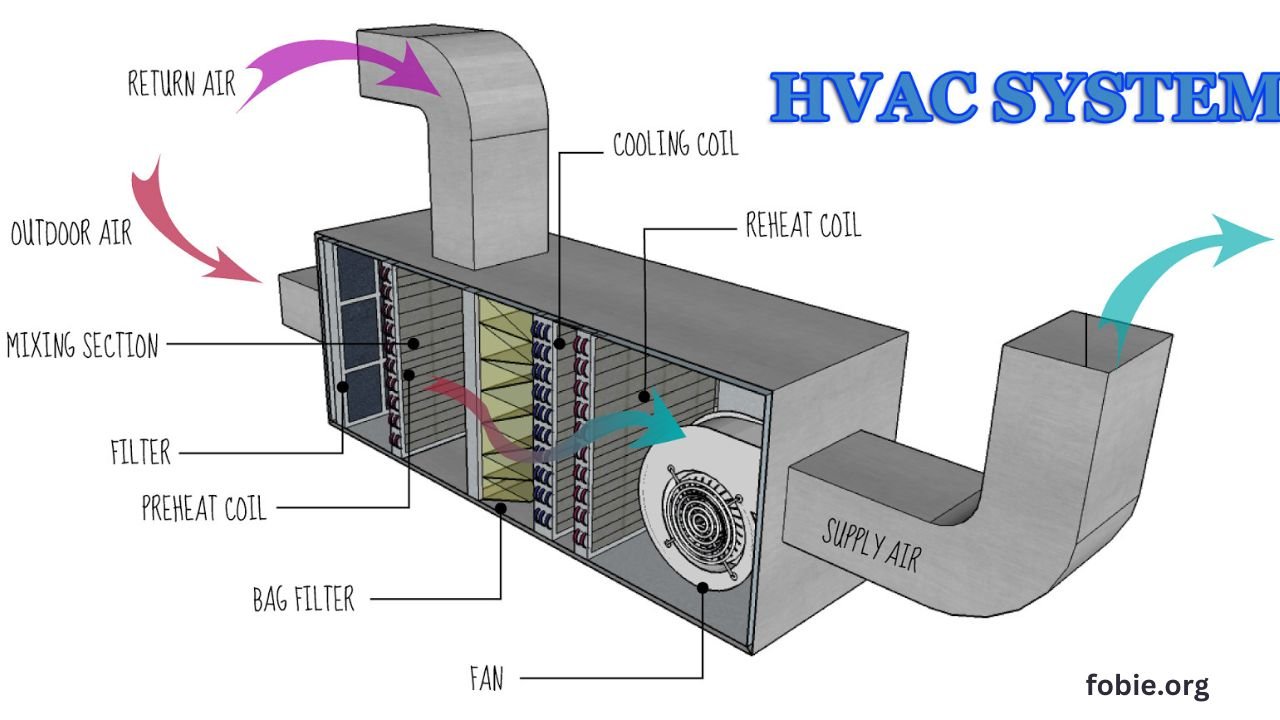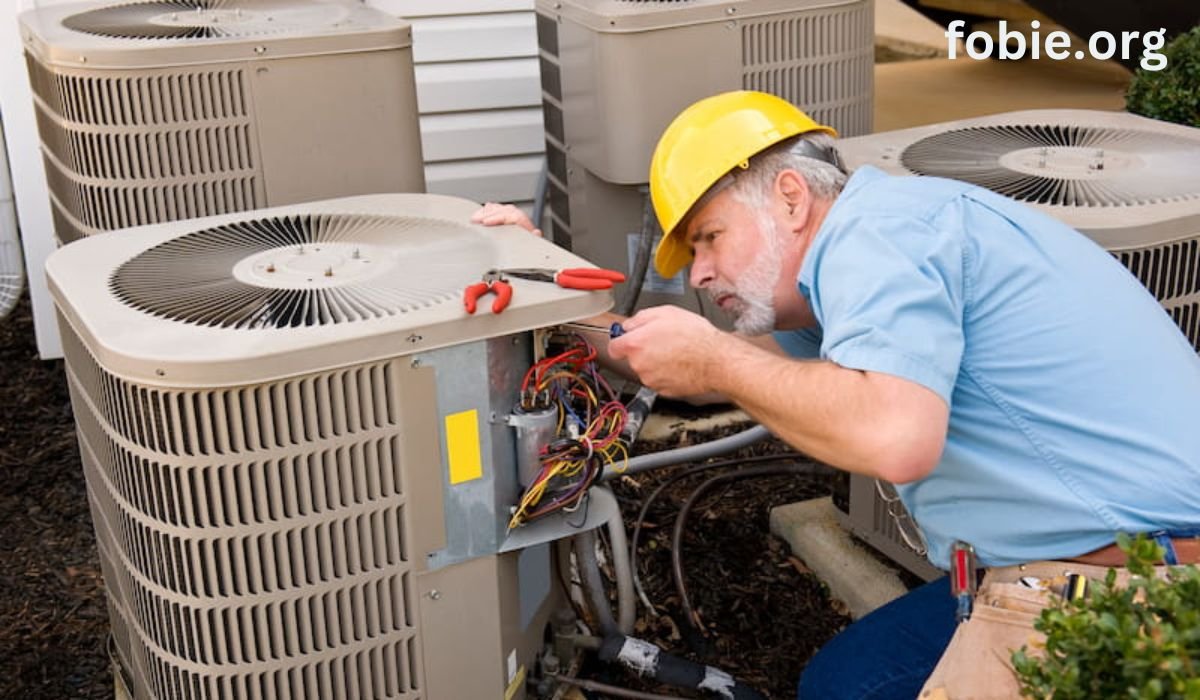Introduction to HVAC Systems
Whether dealing with scorching summers or freezing winters, a reliable Set Point Heating and Cooling system ensures a comfortable indoor environment. Modern HVAC systems are designed to effectively manage both residential and commercial buildings’ temperature, air quality, and humidity levels. Efficient HVAC systems are crucial for not only comfort but also health. Inadequately serviced or obsolete systems may lead to unhealthy indoor air quality, resulting in respiratory issues, allergies, and promoting mold growth. Ensuring that your HVAC system is up-to-date and functioning optimally can significantly impact the overall quality of life within a building.
The Importance of Energy Efficiency
Energy-efficient HVAC systems have become increasingly vital. Rising energy costs and climate change make managing energy consumption more crucial. Buildings account for nearly 40% of total U.S. energy use. This statistic emphasizes the need for energy-efficient solutions from an HVAC Company to help mitigate environmental and financial impacts.
Moreover, energy-efficient systems are designed to use less electricity while providing the same heating or cooling level, reducing utility bills and lessening the strain on electrical grids. Implementing energy-efficient practices can significantly impact national energy consumption and contribute positively toward sustainable development goals.
Types of Energy-Efficient HVAC Systems
- Heat pumps are a more effective option than conventional heating and cooling systems. They utilize ambient air to control the temperatures inside. These systems are very effective as they move heat rather than generating it. Supplemental heating may be needed in colder climates, but modern advancements have made heat pumps viable even in less temperate regions.
- Geothermal Systems: These systems use the natural steadiness of underground temperatures for heating and cooling, making them incredibly efficient year-round. By tapping into the earth’s inherent heat, geothermal systems offer consistent performance with minimal energy use, making them one of the most sustainable options.
- Variable-speed systems: These systems operate at different speeds for optimal energy use, adjusting according to the specific heating or cooling demand at any given time. They can adjust their output based on demand, saving energy and improving comfort, unlike traditional systems that operate at maximum capacity instantaneously.
Benefits of Upgrading to Energy-Efficient HVAC
Switching to an energy-efficient HVAC system offers numerous advantages. Not only do you save on energy bills, but you also experience enhanced indoor comfort and reduced environmental impact. Energy-efficient systems are designed with advanced technology for precise temperature control and air distribution. Many modern systems offer intelligent features such as programmable thermostats, which optimize energy use by learning your schedule and preferences. Features like zoned heating and cooling allow different areas of a home or building to be conditioned independently, further enhancing comfort and efficiency. These systems also tend to be quieter and more durable, providing long-term reliability.
Maintenance Practices for Optimal Performance
Consistent upkeep is essential to ensure your HVAC system operates efficiently and lasts long. The EPA recommends regular service to keep systems running efficiently and to reduce energy use by up to 15%. Regular maintenance tasks include the following:
- Change Filters: Change or replace HVAC filters every 1 to 3 months to maintain the best airflow and indoor air quality.
- Inspect and Clean Components: Ensure that the coils, fins, and other components are free of dirt and debris.
- Check Ductwork: Regularly inspect the ductwork for leaks or obstructions that could compromise airflow.
- Schedule Annual Inspections: Have your system inspected and serviced by a professional annually.
These practices help maintain the system’s efficiency and prevent unexpected breakdowns, thereby saving on costly repairs and ensuring that the system operates reliably when needed most.
Environmental Impact
Energy-efficient HVAC systems significantly lower greenhouse gas emissions. Lower energy consumption directly translates into a smaller carbon footprint. Given the global push towards reducing carbon emissions, adopting energy-efficient HVAC systems is a critical component in environmental conservation. Investing in energy-efficient HVAC solutions is a move towards a more environmentally friendly future due to the increasing focus on sustainable living. Enhanced energy performance standards and developing eco-friendly refrigerants are continuously evolving to minimize environmental impact. As consumers, making informed choices about HVAC technologies can collectively lead to meaningful environmental benefits.
Financial Incentives for Energy-Efficient Systems
Various financial incentives are available to those who upgrade to energy-efficient HVAC systems. These can include tax credits, rebates, and other local programs aimed at encouraging the adoption of greener technologies. These incentives can significantly offset the initial investment cost, making energy-efficient upgrades an economically smart decision.
For instance, federal tax credits may be available for specific energy-efficient installations. Local utility companies often offer rebates for energy-saving upgrades. By researching available incentives, homeowners and businesses can take full advantage of these cost-saving opportunities, making the transition to energy-efficient systems more affordable and attractive.
Choosing the Right System for Your Needs
Selecting the right energy-efficient HVAC system involves carefully considering various factors, such as the size of your space, climate, and specific performance needs. A professional can help you comprehend the options and find the most suitable resolution for your requirements.
Conducting a thorough assessment of your property’s heating and cooling needs is crucial. It involves calculating the appropriate load requirements, considering insulation levels, window efficiency, and local climate conditions. Consulting with experts ensures that the selected system is manageable (leading to inefficiency and higher costs) and too small (failing to meet comfort needs).











